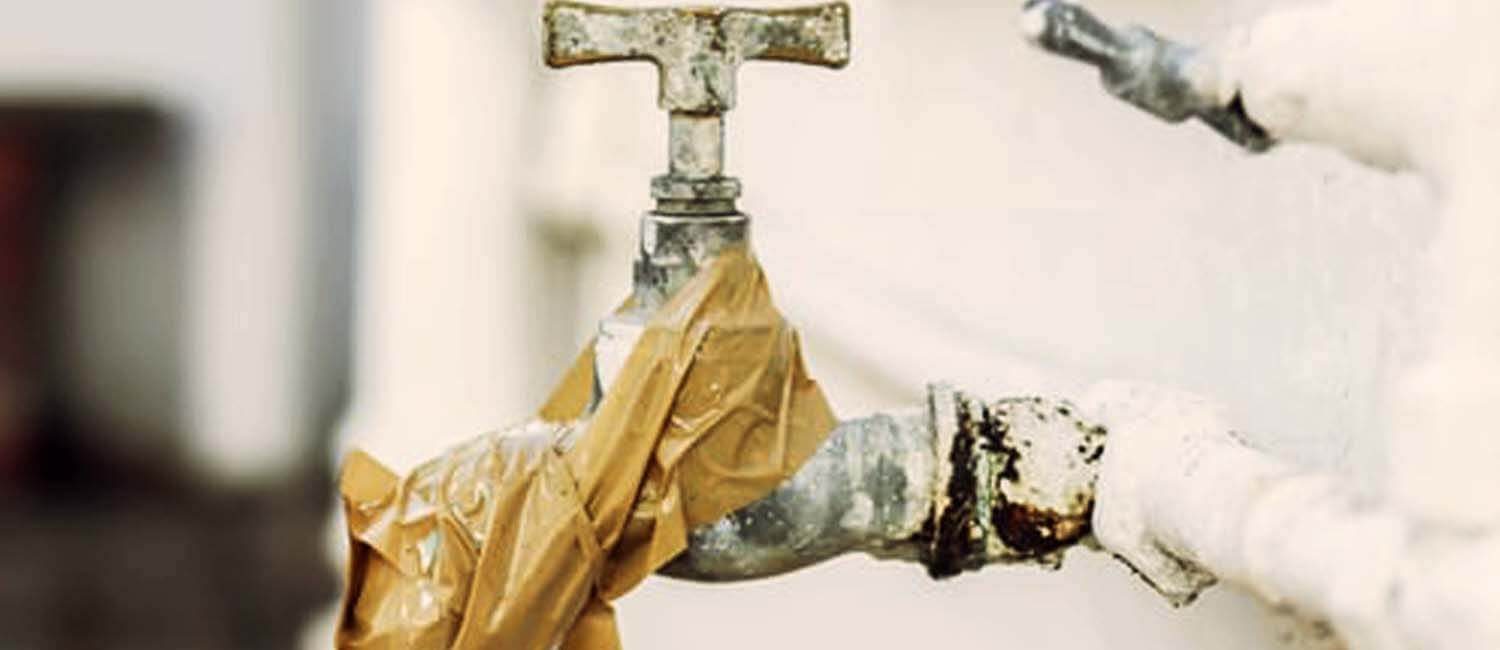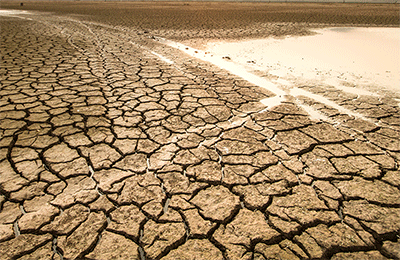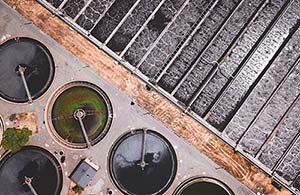

The UK is Running out of Water.
Once unthinkable, the rainy UK is on its way to experiencing its first serious and potentially catastrophic water shortage.
Outside of the UK, there’s been talk of water shortages for years. South Africa’s ‘Day Zero’, when the taps of Cape Town were almost turned off, and California’s various hosepipe restrictions are just two examples of when we’ve come close.
There are a number of reasons why we’re running out of water. Demand is rising steadily as the UK population increases and supply is projected to fall as the effects of climate change take their toll. When you factor this in with ageing infrastructure and increased industrial consumption, the outcome isn’t favourable.
Last month the chief executive of the UK’s Environment Agency, Sir James Bevan, issued a stark and sobering warning. Should the population continue to rise at its current rate, and supply continue to fall, Britain will face what he describes as the ‘jaws of death’ in the next 25 years and not have enough water to meet its needs. For clarity, by "needs", I don’t simply mean running water from a tap but also meeting the needs of industrial sectors too!
I think we’d all like to avoid the ‘jaws of death’ – whatever they may be – so here are four ways the UK water industry could and is helping us avoid this crisis.
Reduce leakage
Fixing leaks from water networks is one of the industry’s biggest priorities.
Currently, three billion litres of water leak out of aged pipes in the UK each day. That’s enough to supply over 20 million people with fresh water every day!
The National Infrastructure Commission (NIC) says that water companies need to halve their leakage by 2050. Bevan has suggested that this is a realistic target - should the UK’s water companies modernise their ageing infrastructure.
According to the Manifesto for Water, companies have put an increased focus on reducing leakage for the 2020-2025 period.
The manifesto unveils proposals to cut leakage by at least 15% over the period, with some companies looking to do even better.
If they’re looking for inspiration, lessons can be learned from projects overseas. The city of Al Ain in the notoriously dry UAE has reduced its non-revenue water (NRW), water that has been lost before reaching the consumer, from 45% to 10% in one area with the addition of 19 District Metering Areas (DMAs).
This has been achieved through investment in an integrated approach including some impressive modern technology.
Invest in Infrastructure
The UK needs to improve its transfer network so water can be transferred from areas with a surplus to areas of water scarcity like the sunny south-east.
According to the first-ever National Infrastructure Assessment (2018), this could provide about 700Ml/day more capacity at a comparable cost to other options.
‘Comparable cost’ still means a hefty investment. Canals, pipelines and reservoirs will all need big money spent on them to allow the UK to maximise its water supply.
The UK has not built a new reservoir in decades and the current crop are ageing and far less efficient than more modernised examples across Europe.
Although this all sounds an expensive solution, the economic case is clear for UK water companies. The longer we wait, the more it will cost.
Citing a 2016 Environment Agency report, Sir Bevan claimed "that while a severe drought would cost each household more than £100 (per drought), the cost per household of the investment that would greatly reduce this risk was only £4 a year."
Regulation, Regulation, Regulation
AMP7 is the seventh Asset Management Period planned by the UK water industry and its regulations will dictate the business plans of UK water companies from 2020 to 2025.
With the UK aiming to avoid a shortage crisis, standards are high for AMP7 and there’s a renewed focus on innovation and efficiency.
UK water companies have pledged more than £50B in improved services and are now obligated to meet the following expectations or else they could face a substantial financial penalty:
- 15% reduction in leakage - the equivalent of more than 170 billion litres of water per year, which would save enough water for three months’ worth of daily showers for everyone in England and Wales combined.
- Cutting greenhouse gas emissions by 45% - the equivalent of taking 360,000 cars off the road.
- Further reduction in pollution incidents - pollution numbers are trending downwards and are currently the lowest on record in the current AMP 6 cycle.
Naturally, heavy investment will likely mean higher costs. Therefore, water companies will need to maximise efficiency and come up with new ways to balance investment and costs in order to meet the targets set for the upcoming AMP cycle.
Operational responses will continue to be of major importance as the UK aims to avoid possible water shortages.
As part of AMP7, water companies are required to provide business plans to the UK’s water industry regulator, Ofwat.
These business plans are still under review by Ofwat and, up to this point, only three of the 17 water companies have been accepted, highlighting the increased expectations and need for drastic improvement within the industry.
An announcement of business plans still under review is expected in July 2019.
Implement Compulsory Metering
Compulsory metering could also have a significant impact on improved water efficiency.
According to the National Infrastructure Assessment, about 50% of homes in the UK are currently metered and this is expected to reach around 80% by 2050. That’s estimated to save a huge 400Ml/ day.
If compulsory metering was brought forward sooner, it would be a significant step in the right direction.
At this moment in time, it is not possible to implement compulsory metering beyond water-stressed areas. Which means that only areas where the demand for water exceeds the available supply can be subjected to compulsory metering.
This is due to regulations set by the Department for Environment, Food and Rural Affairs.
Should the UK wish to implement compulsory metering in these areas before 2030, which would help manage its increasing demand, the regulations must be amended by the end of 2019.
This is a decision that won’t be made lightly because it could mean higher bills for more than a third of consumers, but it is one that will considerably reduce the risk of a shortage and drought.
I would argue that such water shortages could be even more costly.
Summary
It’s clear that the UK water industry is, and will, do everything in its power to avoid a shortage as it faces one of its toughest challenges to date, with Ofwat clamping down on those not following the rules.
But the situation calls for much more action to be taken, not simply by water companies, but in a much wider sense.
There needs to be a shift in society towards reducing, reusing and recycling water across all sectors.
On an individual level, this means reducing personal consumption and reducing the amount of water that is wasted. Sir Bevan has gone as far to say that he wants wasting water to become "as socially unacceptable as blowing smoke in a baby’s face!”
It’s not just our personal consumption of water that needs to be reduced, but big thirsty industries also need to move towards a culture of reuse and recycling, adapting to a more sustainable approach to their own individual water supplies.
There is no generic solution to mitigate water shortages but implementing a range of solutions across a range of sectors is a step in the right direction.
As water shortages become more common, we need to take a strong look at our actions before pointing the finger at the water companies that are working hard to avoid a potentially catastrophic water shortage.
Do you agree? What other action do you think can be taken?
Feel free to join in the conversation and let me know what you think in the comments.
Recommended.

How do we Solve our Global Crisis of Water Scarcity?
To discuss solutions to the global water scarcity challenge I invited experts Nick Bognanno, Chandra Mysore, and Sabine Stuiver to join me on a live webinar, as part of our ‘Future of Smart Cities’ series. Click to read more.

How to Build a Smart Water Network.
There’s no disputing that the introduction of smart water networks is moving from nice-to-have to must-have to futureproof our environmentally conscious cities. I invited leaders in the space to discuss the future of smart water.

How Waterproof is Industry 4.0?
Industry 4.0 is the new industrial revolution. The digitalisation of systems to optimise production processes as a result of integrating collaborative technologies. But what does it really mean for water?

How to Build a Smart Water Network.
What impact will smart cities have on the future of the water industry? And how do we go about creating smart water networks for these cities? Click to find out from our webinar.
Comments.